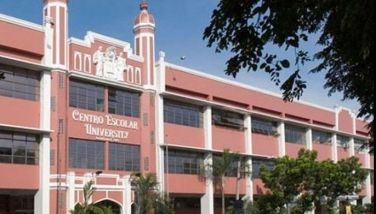Angry Peru quake survivors demand aid
PISCO (AFP) - Anger brewed Saturday among thousands of shocked survivors of the massive earthquake in Peru that killed more than 500 people, with tempers fraying over the slow distribution of emergency supplies.
Amid increasing reports of looting and assaults, President Alan Garcia ordered more troops to the quake-stricken area and promised that authorities would maintain the peace "whatever the cost."
At an air force base in the coastal town of Pisco the area hardest hit by the quake, located some 240 kilometers (150 miles) south-east of Lima Health Minister Carlos Vallejos insisted that aid was getting through but conceded there were problems.
"We have to perfect the problem of aid," he said, adding that some 1,500 physicians and nurses in the stricken area were concentrating on preventing the spread of epidemic diseases.
On the third day after the massive 8.0 magnitude earthquake quake struck Wednesday, the official toll remained at 500 and more than 1,600 injured.
But the number of missing is still unknown, and lacking official figures, news media estimate the number of people affected by the quake at 200,000.
A ray of hope fell on Pisco Saturday with the birth of a baby in a field hospital set up in the city's main square. Garcia took the baby in his arms calling it "a breath of life ... a miracle amid crumbling walls and the pain."
Garcia arrived Friday in Pisco, the scene of some of the worst devastation. Some two-thirds of the city of 130,000 was destroyed, leaving thousands homeless and an unknown number of dead still beneath the rubble of collapsed homes, shops and other buildings.
"Everyone is exposed to the elements," said a 30 year-old father named Antonio, who spent the night in Pisco sleeping outside in chilly 10 degrees Celsius (50 Fahrenheit) night-time temperatures.
"Think about the children. We have many needs and the aid is not arriving."
In Pisco desperate survivors tried to raid a food store. The mob was chased off when the owners fired their weapons into the air.
Mobs looted trucks carrying food and water, and some people tried to break into the air force base where relief efforts have been centralized.
Hours later close to the provincial capital of Ica, another mob tried to raid a convoy of trucks carrying emergency supplies.
In nearby Chincha, soldiers broke up a mob of men and women armed with broomsticks that tried to break into a warehouse filled with emergency supplies. A crowd of 2,000 gathered in the main square to berate officials who were unable to tell them when help would arrive.
At the Pisco air base, Garcia said he was determined to prevent chaos.
"My obligation is to impose order, and order we will impose today, whatever the cost," he said, after the defense minister announced that some 1,000 soldiers were being sent to the region, in addition to nearly 2,000 police officers that have already deployed.
If preventive measures were not enough, "then energetic and physical order shall be imposed," said the president.
Adding to the distress were reports that more than 600 dangerous inmates who escaped from a collapsed prison in nearby Chincha remain on the loose.
Aftershocks continued to keep people on edge. Peru's geophysical institute reported more than 400 tremors following the quake, which was the most devastating to hit the country since 1970.
Health Minister Vallejos said his attentions were now turning to the physical and mental health issues, and he warned of the risk of infectious diseases in the quake-stricken areas respiratory problems, tetanus and diarhhea.
"The problem is not only that there are still unfound bodies, the problem is water," and how human waste is being disposed, he said.
Vallejos said that battlefield hospitals have opened at the base, including one from the US army. A Mexican military hospital ship was also due to arrive, he said.
Among many nations offering personnel and other aid in the rescue operation, a US embassy official said 22 US doctors had already set up a field hospital in Pisco's stadium, and a plane loaded with humanitarian goods was scheduled to arrive late Saturday.
Coordination among all the various organisations and with various Peruvian agencies was "proving to be a challenge," she said, declining to be identified.
She added that she was nonetheless "impressed by what the Peruvian government has done in the past 48 hours," pointing to the efficient process of identifying the bodies still being found, putting them in coffins and handing them over to families for burial.
On Friday a Peruvian navy tanker vessel with a million gallons of drinking water arrived at Pisco's port.
Colombian President Alvaro Uribe meanwhile ordered a Colombian naval ship to sail from the Pacific port of Buenaventura to Pisco on Sunday carrying relief supplies. Colombia had already sent two planeloads totalling 40 tonnes of aid to Peru.
- Latest
- Trending

































